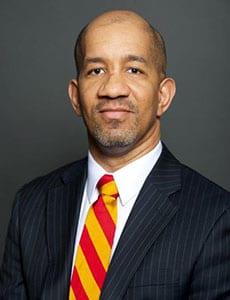For Parents: A Game Plan for College Readiness

Sending your child off to college is one of the most significant milestones for any family. It’s exciting, a little nerve-wracking, and filled with questions about whether your child is truly ready for this next chapter. Beyond academics, preparing for college is about equipping your teen with the skills, confidence, and independence they’ll need to thrive independently. From financial basics and time management to fostering emotional resilience, parents play a powerful role in setting their child up for success.
The final year of high school can feel like a whirlwind of deadlines and big decisions, but college prep doesn’t have to wait until senior year. By taking intentional steps earlier — whether it’s exploring school options, building good study habits, or planning for finances — you can set your child up for a smoother, more confident transition. Think of it as mapping out the journey long before move-in day, so when the time comes, you and your teen are ready to take it on together.
Freshman Year
High school may feel like it’s just beginning, but the first year sets the tone for everything that follows. Encourage your child to make these years count — not only for college admissions and scholarships, but also to build the habits and skills they’ll need to succeed in more challenging, college-level courses. Support them in stretching academically with honors, AP, or IB classes, and guide them toward extracurriculars they genuinely enjoy. A well-rounded resume starts with pursuing what they love.
It’s also the perfect time for your teen to connect with their school counselor. A strong relationship with a counselor can be an incredible resource throughout all four years. They can help map out the right classes, keep track of graduation and admission requirements, and make sure your student stays on the path to their goals.
Finally, start the conversation about your child’s interests and future aspirations. They don’t need to choose a major yet, but exploring what excites them can guide smart course choices and demonstrate their strengths in a particular area. At the very least, these early discussions plant the seed and get them thinking about what’s possible.

Sophomore Year
A bit of planning now will give your student a big advantage as they move toward their upperclassman years. Many schools offer the Preliminary SAT (PSAT) during sophomore year. Even though it officially “counts” junior year, taking it early is smart practice. Beyond easing test-day nerves, the results highlight which subjects may need extra attention before the real thing. Once your teen takes the PSAT, they’ll probably start receiving college brochures and emails. Help them set up simple folders — both physical and digital — to keep track of schools that spark their interest.
It’s also the year to start paying closer attention to your child’s academic strengths and areas for growth. If they’re excelling in a subject, talk with their counselor about more advanced courses or enrichment opportunities. Encourage them to explore extracurriculars that match their passions — such as creative writing for a budding author or robotics for a future engineer. On the flip side, if they’re hitting roadblocks in specific subjects, don’t wait. Seek extra support through teachers, tutors, or community programs. Your counselor can point you toward options that fit your child’s needs and your family’s budget.
As your teen begins to imagine their college future, broaden the conversation to include Historically Black Colleges and Universities (HBCUs). The UNCF website is an excellent resource to learn about its 37 member institutions and the vital role they play in supporting first-generation and low-income students. Reading student stories and testimonies can also give your teen a real sense of campus life and inspire them to consider a broader range of possibilities.

Junior Year
Junior year is often the most demanding year of high school, and one of the most important in preparing for college. While your child won’t make their final decision until senior year, the groundwork you lay now will make the process far less stressful later.
Start by helping your student build a list of potential colleges. Resources like BigFuture by College Board make it easy to compare schools and gather key facts. Encourage your teen to attend college fairs and school counselor sessions when admissions reps visit. Speaking directly with representatives can give them valuable insight into campus life and admissions expectations.
It’s also the year to have honest conversations about your family’s college budget. Keep in mind that scholarships and financial aid can dramatically reduce the cost of attendance. Many schools award merit- and need-based aid, so it’s always worth applying. Be sure to explore UNCF scholarships as well. UNCF is the nation’s largest private scholarship provider for minority students, awarding over $100 million each year to more than 10,000 students nationwide.
Testing is another key milestone. Work with your child to choose a date for the ACT or SAT, ideally junior year, to allow time for retakes if needed. Early preparation not only boosts confidence but can also open the door to early application opportunities.
Finally, once your student has narrowed down their list, try to schedule campus visits. Nothing compares to walking through a campus and imagining life there. If travel isn’t an option, make sure to explore virtual tours and events. And don’t miss the UNCF Empower Me Tour (EMT) — a free series of college- and career-readiness events. EMT stops often include onsite admissions and scholarship offers for high school seniors, making it a powerful opportunity to jump-start your child’s college journey.

Senior Year
The final year of high school is the most exciting (and stressful) year of all. Done right, your child will see all their hard work come to fruition. Encourage them to take note of all the impending deadlines, big and small.
- When are applications due at each of their favorite schools?
- Does the school offer an early application or early decision program?
- When does each school need to receive test scores, transcripts, and letters of recommendation?
- When does your student need to make the final decision to enroll in their school of choice?
With all the hard work your student has put in, don’t let them miss an opportunity due to a forgotten deadline.
As your child sends out applications, seek application fee waivers where they’re available. Check the National Association of College Admission Counselors’ website and fill out a fee waiver form. If your child took the SAT, they can apply for a waiver through The College Board. You can talk to college admissions counselors to see if their school offers waivers independently. The application process can be extremely time-consuming; however, there are resources available to help alleviate the administrative burden. With the Common Black College App, for example, your child can apply to as many as 53 HBCUs in one single application.
Getting into college isn’t about chasing perfection — it’s about growth, resilience, and discovering the path that feels right for your child. The research, the planning, the tough conversations — all of it is part of helping them step into their future with confidence. What matters most isn’t just the acceptance letters, but the lessons they’ll carry with them along the way. Your steady support and encouragement will prepare your student for college and empower them to embrace the opportunities, challenges, and adventures that come with it. And that is a gift that lasts far beyond the college years.
Whether your child is applying to college next year or still has a few years to go, staying informed is one of the best ways to guide them with confidence. The challenge? Information overload. While it’s great to have answers at your fingertips, the sheer volume of deadlines, requirements, and opportunities can feel overwhelming.
That’s where UNCF comes in. By subscribing to our email updates, you’ll receive carefully curated resources that truly matter — scholarship opportunities, expert advice, and timely reminders — delivered straight to your inbox. No more sifting through endless websites or second-guessing what’s important. With the right insights at the right time, you’ll be equipped to support your student through the application process and beyond, helping them step into college — and life — with their best foot forward.
 Sekou Biddle, UNCF’s Vice President, Advocacy, leads UNCF’s advocacy efforts to ensure more African American students will be college-ready and better prepared to enroll in and complete college by driving sustainable education reforms that benefit students and empower parents and communities to demand improvement.
Sekou Biddle, UNCF’s Vice President, Advocacy, leads UNCF’s advocacy efforts to ensure more African American students will be college-ready and better prepared to enroll in and complete college by driving sustainable education reforms that benefit students and empower parents and communities to demand improvement.